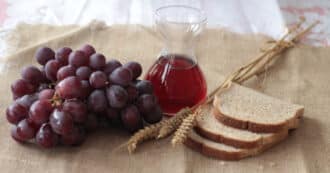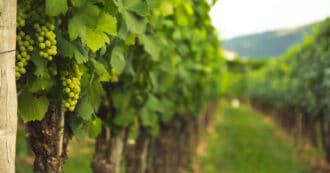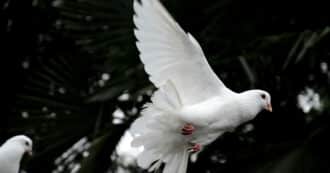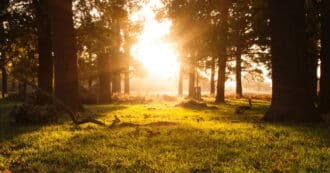The Rev. Dr. Leah D. Schade; leahschade@gmail.com
Here are ideas for reading and preaching Exodus 12:1-14 connecting Maundy Thursday and Passover. This is part of the EcoPreacher 1-2-3 series to equip pastors and congregations for engaging the Bible through an ecological lens.
Maundy Thursday and Passover have deep environmental connections. The eco-wisdom of the Hebrew Scriptures can expand our experience of this holy day and the journey to Easter. God’s command to mark the month of the first Passover is about the sacredness of time and the cycles of nature.
Exodus 12:2: This month shall mark for you the beginning of the months; it shall be the first of the months of the year for you.
Eco-Exegesis
Eco-exegesis is a method of interpreting the biblical text through a green lens using the principles of ecological theology. For this passage, we turn to the Eco Bible, a Jewish ecological commentary on the Hebrew texts.
The Christian liturgy of Maundy Thursday includes rituals of foot washing (based on John 13:1-17) and Holy Communion (based on 1 Corinthians 11:23-26). Jesus’s last meal with his disciples took place during the Jewish festival of Passover. But are we aware of the ecological significance of the first Passover and what it meant for the Jewish people? What is the deeper environmental meaning of God’s command to mark the “first month” in the season of the Exodus?
From Eco Bible we learn, “The commandment to mark the Hebrew month of Nisan is the very first commandment given to the Israelites as a people. While still in Egypt, the people are commanded to note the month so that they may prepare to observe the first Passover in springtime, the season of the Exodus” (119-120). What is the significance of this commandment to be aware of time in such a ritualistic way?
In contrast with a linear concept of time, the Torah calendar “reflects the cyclical nature of the year with a precise system of holidays and observances connected to each moment and season. The beginning of the year, the month of Nisan, is the linchpin of that connection” (120). Why was this commandment vital for the Israelites? Because it is in direct resistance to the demand of extractive and oppressive economies (like Egypt’s in ancient history and our own capitalistic systems today) that disallow rest and honoring the God of Creation. The spring holy days – Passover for Jews, Holy Week and Easter for Christians – are a temporal reminder that we are more than our work.
God gives us seasonal festivals that allow us to get in touch with the created order and reorient ourselves to the natural rhythms of life. “This demonstrates the Torah’s deep awareness of the Divine character of nature’s cycle,” (120). In his 1942 book, The Screwtape Letters, C. S. Lewis imagines a letter from a senior demon to his nephew describing how the seasons are part of God’s grand design:
Since [humans] need change, [God] (being a hedonist at heart) has made change pleasurable to them, just as He has made eating pleasurable. But since He does not wish them to make change, any more than eating, an end in itself, He has balanced the love of change in them by a love of permanence. He has contrived to gratify both tastes together in the very world He has made, by that union of change and permanence which we call Rhythm. He gives them the seasons, each season different yet every year the same, so that spring is always felt as a novelty yet always as the recurrence of an immemorial theme. He gives them in His Church a spiritual year; they change from a fast to a feast, but it is the same feast as before. (The Screwtape Letters, C. S. Lewis (New York: HarperOne, Reprint, 2015), 136.)
It is no coincidence, then, that the holy days marking our deliverance occur in springtime. As the editors of Eco Bible observe, “Everyone is aware of the tremendous energy of renewal that occurs in the springtime. The rebirth of flowers and greenery, the new life in the fields – these are symbols of our redemption,” (120).
1. Eco-Idea
The Eco-Idea is one succinct statement that tells us who God is and/or what God does in relation to Creation and how we should respond as people of faith.
The holy days of Maundy Thursday and Passover, grounded in the springtime cycle, are God’s assurance that oppression can end, our liberation is at hand, and hope rises from Earth itself.
2. Eco-Questions
Eco-Questions are what we can ask to help a congregation draw out the implications of the Eco-Exegesis and Eco-Idea.
- Where else do you see aspects of Creation in Exodus 12:1-14? How does the food of Passover connect God’s people with the cycles of life, such as the young lamb, the bitter herbs, and the unleavened bread?
- How does our consumerist economy disrupt and commodify the natural cycles of days, weeks, months, and seasons? And how can our liturgy make revolutionary space for cultivating a deeper connection with God’s time manifest in nature?
3. Eco-Actions
Eco-Actions are ways that a congregation might respond to the Eco-Idea and Eco-Questions. One of these possibilities may have salience for your ministry context.
- Eco Bible recommends that we “Pray with the sunrise. The sunrise is a constant source of inspiration to the day it brings. The tradition of praying at sunrise is a tried and tested way of increasing our awareness and connection to each day” (123). More than just the Easter sunrise service, try praying at sunrise for every day of the Easter season. What do you notice about your prayer life and the gradual change of the dawn being a bit earlier each day? How does this recalibrate you to the rhythms of time on this planet?
- Plan a series of weekly nature walks for your congregation at a local park or nature preserve. This can be an intergenerational spiritual discipline that cultivates a prayerful orientation to the world God has made. Begin with a gathering of prayer, then set off together to walk and observe. Note what differences you see each time in the trees, flowers, and animals in the area.
- Invite someone from a local farm co-op to visit your church and offer “shares” in the harvest for the coming season. By supporting local farmers, not only can your congregation help build community, everyone can be more attuned to the seasonal gifts of nature. Also, people will enjoy the added health benefits of eating local foods that retain more of their nutritional value and taste better when consumed at the peak of freshness.
*Featured image source





